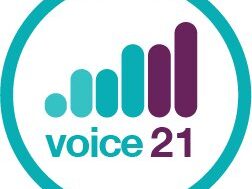Creating a culture of high expectations in a secondary classroom
A variety of research into teacher expectations reveals that they can affect the performance of students. Brattesani, Weinstein and Marshall (1984) claimed that teachers’ behaviour communicates their achievement expectations to their students and influences students’ own expectations and achievement as a result. Studies conducted by Rosenthal and Jacobson (1963) into teacher expectations of students concluded that teacher beliefs of what pupils are capable of can have a profound effect on their achievement. In this research, teachers were given inaccurate information about pupils’ prior attainment (i.e. that some pupils had achieved highly in assessments when in reality they had not); as a result the teachers had higher expectations of the pupils, taught them differently, and the pupils made more progress than their peers.
Pupils who feel supported by their teachers are less likely to become alienated and disengaged from their work. Muller, Katz and Dance (1999) comment that students report it is important to have teachers who care about them. They want their teachers to believe that they can do good work, and to demand it.
As you watch this video of classroom practice from Beaumont School, you’ll be provided with a series of prompts and pauses for reflection throughout. Use these prompts individually, or with colleagues, to contemplate the teacher’s practice.
Once you’ve watched the video, take some time to reflect on what the teacher has done, how they’ve done it, what they might have done differently, and how this might influence your own practice whether you’re establishing or revisiting your classroom’s learning culture.
You need to be logged in to view this video
References
- Brattesani K, Weinstein R, and Marshall H (1984). Student Perceptions of Differential Teacher Treatment as Moderators of Teacher Expectation Effects. Journal of Educational Psychology. 76 (2) pp.236-247
- Muller C, Katz S and Dance L (1999). Investing in Teaching and Learning: Dynamics of the Teacher-Student Relationship from Each Actor’s Perspective. Urban Education. 34 (3) pp. 292-337.
- Rosenthal R, and Jacobsen L (1968) Pygmalion in the classroom: teacher expectation and pupils’ intellectual development. New York: Holt: Rinehart and Winston


